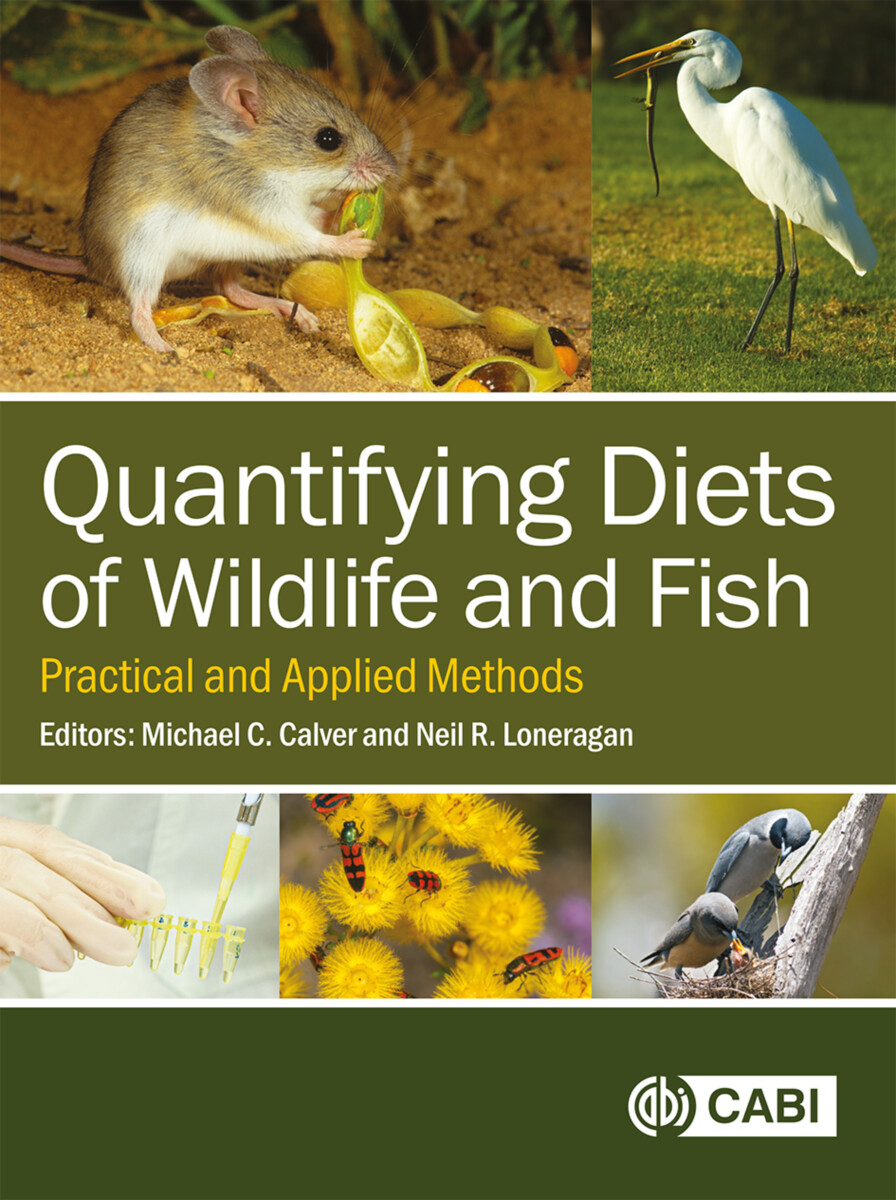Quantifying Diets of Wildlife and Fish
Practical and Applied Methods
- Publisher
CABI - Published
22nd May 2024 - ISBN 9781800625105
- Language English
- Pages 240 pp.
- Size 6" x 9"
Quantifying Diets of Wildlife and Fish presents different techniques available to study animal diets. Ecologists determine animal diets to build natural history knowledge, test hypotheses in ecological theory and make informed management decisions for important ecosystems. Many researchers use techniques traditionally applied to the animals they study, rather than choose from the techniques with greatest potential for their study. In an effort to encourage researchers to consider new approaches, this book focuses on the techniques, rather than on particular groups of organisms or specific environments.
With contributions from leading ecologists, chapters explore experimental design, observational techniques (including new technologies), stomach contents and fecal analysis, eDNA, tracers and stable isotopes. They also cover the latest multivariate methods of analyses suitable for describing animal diets and feeding relationships, as well as testing hypotheses relevant to ecological theory, environmental management and biological conservation. The expert knowledge provided will encourage readers to look beyond the boundaries of their specialties, assist in testing important hypotheses and provide insights into management problems. The examples in this book cover a range of vertebrates and invertebrates, as well as different environments, to open these methods up for novice ecologists and stimulate lateral thinking in more experienced researchers.
1. Why and how should we study animal diets? —Michael C. Calver, Neil R. Loneragan, Margaret E. Platell, Matthew W. Hayward and James R. Tweedley
2. Applying natural history field observations to describing animal foraging behaviour—Harry F. Recher and Michael C. Calver
3. Stomach content analysis—Ronald Baker, Heather M. Crawford and Marcus Sheaves
4. Faecal analysis—Patricia A. Fleming and Natalie K.Grassi
5. Metabarcoding to assess animal diets—Haruko Ando
6. Diet tracers in food webs: fatty acids and their carbon and hydrogen stable isotopes —Martin J. Kainz, Matthias Pilecky and Fen Guo
7. Stable isotope analysis—Kátya Abrantes and Marcus Sheaves
8. Field experiments on foragers, food and their interactions—Christopher R. Dickman
9.Demystifying multivariate approaches for analysing dietary data—Margaret E. Platell, Matthew W. Hayward and James R. Tweedley
10. Where to from here in the study of animal diets? —Michael C. Calver and Neil R. Loneragan
Michael Calver
Emeritus Professor Michael Calver is based in the School of Environmental and Conservation Sciences, as well as the Centre for Terrestrial Ecosystem Science and Sustainability in the Harry Butler Institute at Murdoch University. Michael describes himself as a frustrated ecologist who, despite earning his PhD in entomology, soon discovered that prospective research students were more interested in the kind of animals that view insects as food.
Neil Loneragan
Emeritus Professor Neil Loneragan is based in the School of Environmental and Conservation Sciences and the Harry Butler Institute at Murdoch University and is an adjunct Professor at IPB University in Indonesia. His interests lie in understanding marine and estuarine food webs, fisheries dynamics, and the application of ecological principles to evaluating fish stock enhancement and marine ranching.


